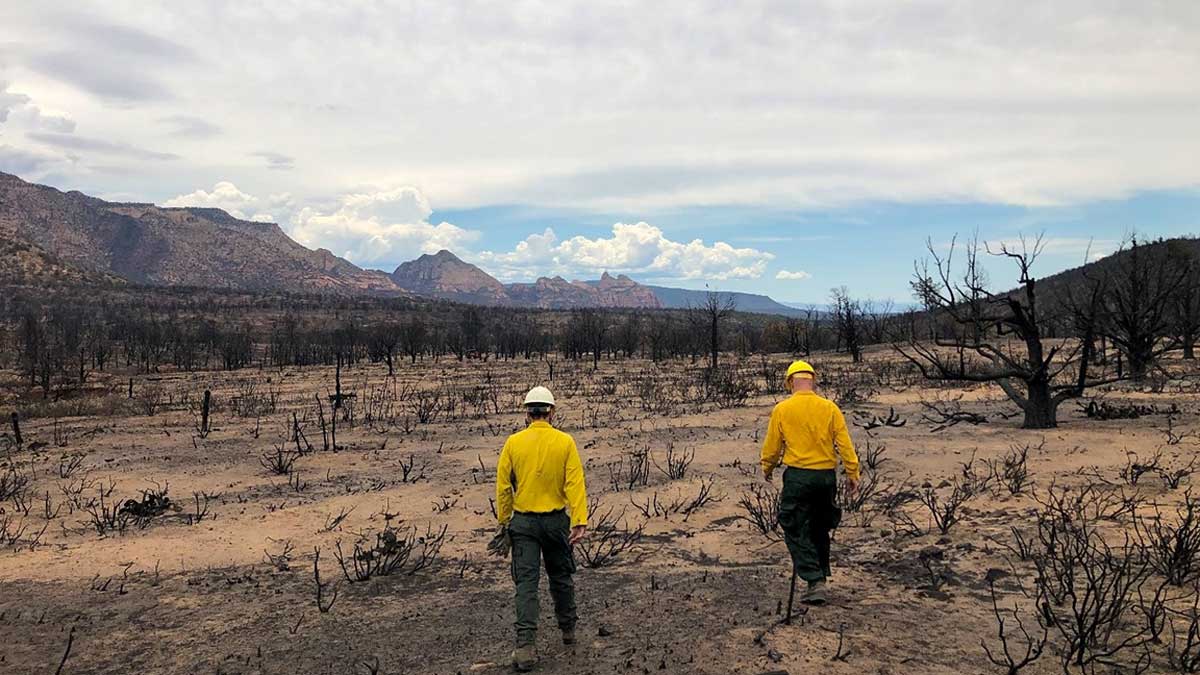Below is an op-ed by the Rocky Mountain Elk Foundation published in Montana’s major newspapers.
The 2015 Cottonwood Environmental Law Center v U.S. Forest Service decision in the 9th Circuit Court represents a major step backwards for forest management in the western states and has proven detrimental to habitat, wildlife and people. Since the decision, there has been a bipartisan consensus that the new interpretation of the Endangered Species Act (ESA) created by the court, only applicable in the western states, was incorrect. This is evidenced by efforts of both the Obama and Trump administrations to overturn it, and a strong bipartisan vote in the Senate Energy and Natural Resources Committee in 2022. Both Montana U.S. Senators, one a Republican and the other a Democrat, support fixing the Cottonwood decision.
The Rocky Mountain Elk Foundation (RMEF) recognizes the importance of environmental review of proposed forest management projects, including National Environmental Policy Act (NEPA) reviews and consultation with the Fish and Wildlife Service under the ESA. The standard reviews are thorough and can take years to complete within the bureaucratic system. However, the Cottonwood decision creates a never-ending loop where lawyers can slow down or stop projects that already completed ESA consultation each time there is a shred of new information, much of which is redundant or irrelevant but still used to stop the process. The result is management paralysis, resulting in degraded forest habitats and an increased risk of catastrophic wildfire.
The irony is that non-management of federal forests through a judicial interpretation of the ESA has devastating impacts on wildlife, including endangered species the ESA is intended to protect. In April of 2022, the Hermit’s Peak Fire in New Mexico began as a prescribed fire that got out of control. The Forest Service’s Wildfire Review Report noted that pre-treatment was delayed by a Cottonwood-related injunction. A thinned project area would have had lower wildfire risk. The subsequent 341,000-acre fire destroyed habitat for the threatened Mexican spotted owls, elk and virtually all wildlife in the area.
Here in Montana, the Stonewall Vegetation Project in the Helena-Lewis and Clark Forest was one of the first projects halted by a Cottonwood injunction. A scientifically planned thinning and harvest of beetle-killed lodgepole pines and unnaturally dense stands of fire-prone trees was intended to enhance habitat and reduce fire risk. An injunction halted the project in May of 2017 despite the court acknowledging “…that the Project area is susceptible to severe and intense wildfires due to elevated fuel levels caused by ‘heavy accumulations of dead and down timber.’ However, though there is the possibility of serious fire activity within the boundaries of the Project, there is no indication that this area is at risk of imminent fire activity.” Less than two months later, lightning sparked the Park Creek Fire that burned much of the proposed project area, proving that land management decisions are best made by resource professionals and not courts. The environmental organizations that filed the suit and enabled this disaster were also paid $100,500 for attorney fees under the “Equal Access to Justice Act.”
A recent op-ed from the attorney that runs the Cottonwood Environmental Law Center, and who is now running for political office himself, predictably defends the Cottonwood decision. His editorial lashed out at political leaders in the state who are working to get federal forest management back on track. Fixing the Cottonwood decision is one issue the entire Montana Congressional delegation agrees on, as do 50 of the nation’s major conservation organizations as indicated by a 2022 American Wildlife Conservation Partners letter led by Montana-based RMEF and the Boone and Crockett Club.
Attorneys, and the environmental organizations that hire them, appear to be the main beneficiaries of the Cottonwood decision, particularly when their fees are paid by the taxpayers following their suits. The Forest Service reports that dozens of projects are under litigation or are under threat of lawsuit and predicts it will be five to 10 years and cost millions of dollars to complete the required ESA re-consultations because of the Cottonwood ruling. According to the Forest Service deputy chief, this will divert resources from ongoing and future land management plan revisions and from on-the-ground activities.
The Cottonwood ruling is making our forests less sustainable. That means fewer elk, fewer lynx and fewer healthy ecosystems. And the tradeoff is that we get more smoke and more lawsuits. That is a bad trade.
The Rocky Mountain Elk Foundation is based in Missoula. Since 1984, it conserved or enhanced more than 8.6 million acres of habitat for elk, mule deer, moose, black bears, pronghorn antelope and other wildlife.
